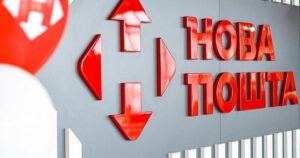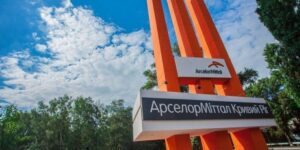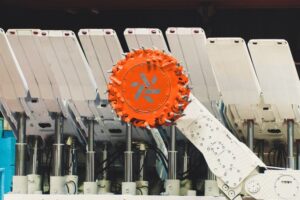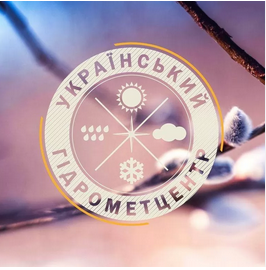
Nova Poshta, the leader in express delivery in Ukraine and part of the Nova Group, increased its consolidated net profit by 35.1% in January-September 2025 compared to the same period last year, to UAH 2 billion 876.38 million.
According to the company’s consolidated interim report on its website, consolidated net revenue increased by 21.7% to UAH 45 billion 727.67 million.
It is noted that Nova Poshta’s gross profit for the first nine months of 2025 reached UAH 10.81063 billion, which is 18% more than in the same period last year, while operating profit increased by 19.8% to UAH 5.67507 billion.
In January-September this year, the company spent UAH 2.9428 billion on the acquisition of non-current assets, which is 39.7% less than in January-September last year.
According to the report, loans received in the first nine months of this year decreased by 16.6% to UAH 4.05 billion, while their repayment increased by 68.8% to UAH 4.98 billion, interest expenses by 24.8% to UAH 1.14 billion, and finance lease liabilities by 27.2% to UAH 1.88 billion.
In addition, dividend payments increased by 68.2% to UAH 1.04 billion.
According to the report, the balance of funds at the end of the third quarter was UAH 8.79 billion, compared to UAH 9.09 billion at the beginning of the year and UAH 5.27 billion a year ago.
As reported, according to the published interim unconsolidated financial statements, Nova Poshta increased its revenue for the first nine months of this year by 22.5% compared to the same period in 2024 to UAH 37.73011 billion and reduced its net profit by 6.2% to UAH 1.54420 billion.
In the first half of 2025, Nova Poshta increased its consolidated net profit by 18.6% compared to the same period last year, to UAH 1.765 billion, and its consolidated net income by 22%, to UAH 29.829 billion.
The Nova Poshta website states that the company has 110 terminals and depots throughout the country, with the eight largest terminals located in Kyiv, Kharkiv, Khmelnytskyi, Lviv, Dnipro, Odesa, and Zaporizhzhia.
As of October 6, the leader in express delivery in Ukraine had 44,983 service points, including 14,336 branches and 30,647 post offices. In the first half of this year, the branch network grew by 708 points to 13,985, and the number of parcel terminals increased by more than 4,000 to 28,326.
The ultimate beneficial owners of the company are Volodymyr Poperechnyuk and Vyacheslav Klimov.

The Kryvyi Rih Mining and Metallurgical Plant PJSC ArcelorMittal Kryvyi Rih (AMKR, Dnipropetrovsk region) intends to attract a loan of up to $200 million from the European Bank for Reconstruction and Development (EBRD).
According to the company, on November 26, 2025, the supervisory board of AMKR approved a significant transaction—securing a loan from the EBRD.
The market value of the property or services that are the subject of the transaction is determined in accordance with the law: no more than $200 million (UAH 8,480,300 thousand at the NBU exchange rate as of November 26, 2025). The value of the issuer’s assets, according to the latest annual financial statements, is UAH 51,725,655 thousand. The ratio of the market value of the property or services that are the subject of the transaction to the value of the issuer’s assets, according to the latest annual financial statements (in percent) is 16.3947658082%.
ArcelorMittal Kryvyi Rih is the largest producer of rolled steel in Ukraine. It specializes in the production of long products, in particular, rebar and wire rod. The company has a full production cycle, with production capacities designed for an annual output of over 6 million tons of steel, more than 5 million tons of rolled products, and over 5.5 million tons of pig iron.
ArcelorMittal owns Ukraine’s largest mining and metallurgical complex, ArcelorMittal Kryvyi Rih, and a number of small companies, including ArcelorMittal Beryslav.

Corum Druzhkivka Machine-Building Plant (Corum DrMZ), part of the Corum Group (DTEK Energy), plans to complete the manufacture of a two-story cage for DTEK Energy in December this year, the plant announced on Facebook.
The equipment, with a lifting capacity of 13.2 tons, is designed to lower and lift people, as well as to transport trolleys, materials, and equipment through a vertical shaft.
The plant notes that the cage is based on a serial design, but has been fully adapted to the conditions of future operation.
Improvements include an updated anti-corrosion coating, reinforced door assemblies with three bolts, and different types of cladding on each floor to withstand different loads.
A separate element of the design has recently been patented.
Korum DrMZ, relocated in 2022 from Druzhkivka (Donetsk region) to Dnipro, in January-September this year, according to YouControl, incurred losses of almost UAH 90 million compared to a net profit of UAH 4.6 million for the same period last year and slightly lower net sales revenue of UAH 844.6 million.
In January-October, the plant manufactured 336 units of mining equipment, repaired 12 units of equipment, and produced over 821,000 parts.
Corum Group is a leading manufacturer of mining equipment in Ukraine. It is part of DTEK Energy, an operating company responsible for coal mining and coal-fired power generation within Rinat Akhmetov’s DTEK energy holding.

The Government Office for Coordination of European and Euro-Atlantic Integration, the Ministry of Digital Transformation of Ukraine, language technology company Tilde, and the Latvian National Center for Artificial Intelligence have signed a memorandum of cooperation.
“The document establishes a framework for cooperation in the development of language models, exchange of experience, and implementation of AI tools to support Ukraine’s institutional capacity on the path to EU membership,” according to a statement from the Office of the Deputy Prime Minister for European and Euro-Atlantic Integration.
As Deputy Prime Minister for European and Euro-Atlantic Integration of Ukraine Taras Kachka said during the signing, Ukraine is currently in the active phase of negotiations on accession to the European Union, and the next 24 months will be decisive.
“And right now, it is important to join forces to implement not only legislation but also tools that strengthen the institutional capacity of the state,” he added.
In his opinion, such tools include artificial intelligence technology, in particular for the translation and analysis of EU legal acts, as well as the importance of preserving the culture of the Ukrainian language and its authentic models in public documentation related to European integration.
“The language technology company Tilde was chosen as the most suitable solution for Ukrainian needs, as this platform takes into account the peculiarities of the Ukrainian language, its phraseology, morphology, and stylistics, which ensures the authenticity of translations. This solution will also allow for further scaling of the technology to involve other ministries, state bodies, and enterprises. The cooperation provides for the exchange of experience between experts from the parties to the memorandum, the joint development of language models, and support for new digital services,” the statement said.

On Sunday, Ukrainian President Volodymyr Zelensky announced the appointment of Oksana Markarova as presidential advisor on Ukraine’s recovery and investment.
“Starting today, Oksana Markarova will continue to assist our state as my advisor on Ukraine’s recovery and investment. We will definitely protect our independence and Ukraine’s right to be a sovereign European state. We have been ensuring Ukraine’s ability to defend itself and, on a daily basis, to resist full-scale Russian aggression for almost four years. Despite all the difficulties, we are providing Ukraine with the necessary weapons, air defense systems, and sufficient resources for internal stability,” he wrote on Telegram.
Zelensky noted that Markarova’s appointment will contribute to the realization of the long-term goal of the country’s recovery and economic development.
“In addition to the fundamental goal of protecting Ukraine’s independence and working daily for its survival, we have a long-term goal: to ensure that Ukraine can rebuild after the hostilities and resume normal economic development. This is a task for the
Ukrainian government, all our institutions, and Ukrainian business, and I believe that everyone who can help Ukraine in this should do so,” he said.
The relevant decree of the President of Ukraine No. 872/2025 on the appointment of Markarova as advisor to the President of Ukraine on the restoration of Ukraine and investments was published on the website of the Office of the President of Ukraine.
The website states that Oksana Markarova recently completed her term as Ambassador Extraordinary and Plenipotentiary of Ukraine to the United States (2021-2025) and representative of Ukraine to the Organization of American States.
“She has significant experience in public finance and private capital management, as well as in attracting investment. While working in senior positions at the Ministry of Finance of Ukraine, Oksana Markarova created the government agency UkraineInvest and the Startup Support Fund,” the statement added.
It is noted that the advisor will advise the president on issues related to improving the business climate, strengthening the financial stability of the state, attracting investment, and planning recovery together with Ukraine’s strategic partners.

The Ukrainian Hydrometeorological Center warns of deteriorating weather conditions in Zhytomyr and western regions of Ukraine on Monday, December 1.
“On December 1, fog is expected in the western and Zhytomyr regions, with visibility of 200-500 m (level I hazard, yellow),” the report states.
It is noted that weather conditions may lead to traffic complications.